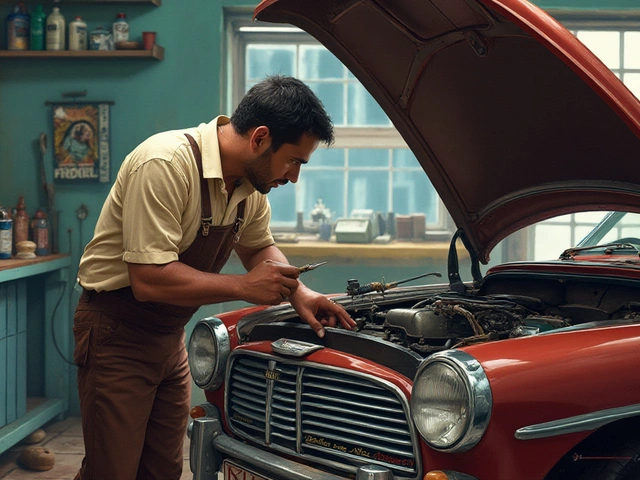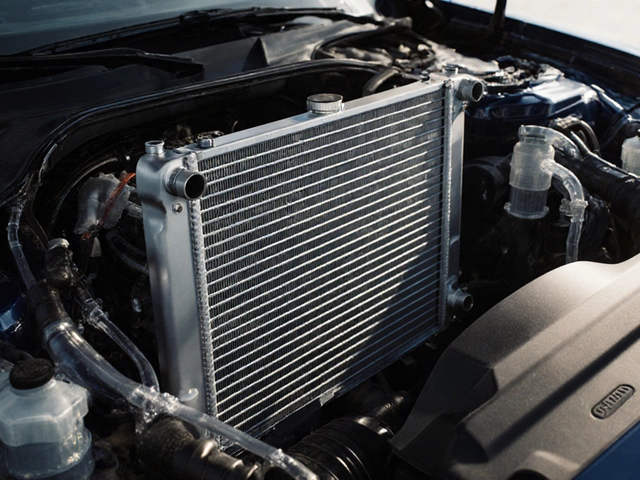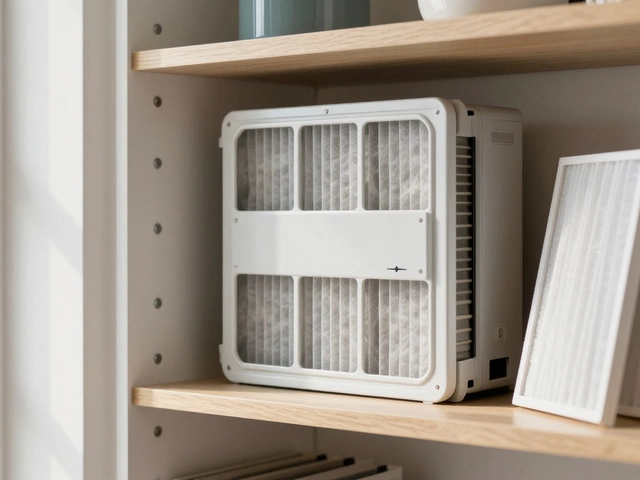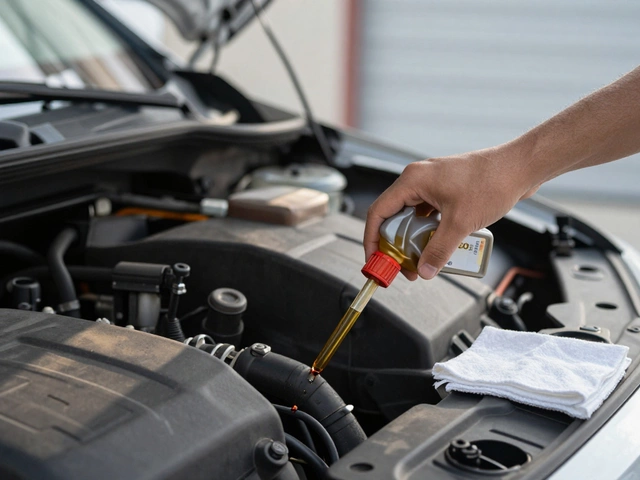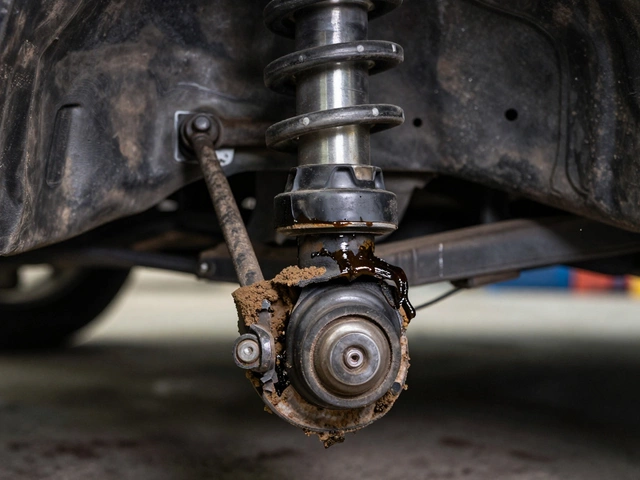
Driving should be a peaceful experience, right? But what if your car starts sounding like a percussion band every time you hit a bump? We're talking about clunks, squeaks, and rattles that can drive you up the wall. If your car's making these troubling noises, it might just be your suspension system crying for help.
The suspension system is like your car's unsung hero, absorbing shocks, making sure your ride is smooth, and ensuring those tires stay in contact with the road. When it starts acting up, it doesn't stay quiet about it. Imagine clanking or knocking sounds every time you go over a bump—those are signs not to ignore.
Spotting these noises early can be a real money saver. Think of it like catching a cold before it turns into the flu. Pay attention to your car's noises, and you'll not only extend its life but also save on costly repairs down the line.
- Common Noises of a Bad Suspension
- Causes Behind the Sounds
- Consequences of Ignoring These Sounds
- Tips for Maintenance and Prevention
Common Noises of a Bad Suspension
Ever noticed your car making strange noises and found yourself wondering what's going on underneath? Well, your suspension system might be trying to get your attention. It can communicate in various ways, and knowing these noises can keep you from heading into expensive repair territory.
Clunking Sounds
Clunk, clunk—it sounds like something’s trying to jump out of your car. Usually, this happens when there's either a loose component or something's worn out. Common culprits are often suspension parts like ball joints or control arms. This noise might be most noticeable when driving over speed bumps or potholes.
Squeaking or Squealing
Squeaks are like the nails on a chalkboard for car owners. They commonly mean that the bushings, which absorb road shocks, might be worn down or dried out. It can often occur when steering or during slight bumps.
Rattling Sounds
If it sounds like you're carrying a sack of marbles under your car, it's likely due to loose components or worn struts. A rattling suspension system can make corners feel like a roller coaster.
Grinding Noises
When your suspension makes grinding noises, it's time to pay close attention. This is often a sign of metal-on-metal contact, possibly due to issues with the coil springs, or shock absorbers. Ignoring this noise might lead to more significant damage.
These sounds are your car's way of sending out an SOS. Understanding what each noise means can save you time, stress, and repair costs.
Real-Life Data
In a survey conducted by the Auto Maintenance Association in 2023, over 40% of regular maintenance checks unveiled suspension-related issues, primarily signaled by unexplained noises.
Causes Behind the Sounds
When a suspension system starts making noise, it's often not a matter of 'if' something's wrong, but 'what'. These sounds are the system's way of waving a red flag—let's decode what they're trying to say.
Loose or Worn Parts
One common culprit behind those annoying clunks and rattles is loose or worn parts. Think about bushings or ball joints—they can wear out and get loose over time, and when that happens, they start clanking like they’re playing cymbals under your hood. If you hear metallic clanking or creaking, it might be time for a check-up.
Faulty Shocks or Struts
If you’re hearing a lot of bouncing noise when you hit a bump, your shocks or struts might be the reason. Their job is to dampen the vibrations from the road. When they’re worn out, you’ll feel and hear every single pothole. That bouncing isn’t just annoying—it’s risky too, as it can affect how well you control your car.
Dirt and Debris
While not as critical, dirt, and debris stuck in the suspension system can still cause irritating squeaks. It’s like sand stuck in your sneakers—uncomfortable and potentially damaging over time.
Alignment Issues
If your alignment is off, you could hear groaning or whining while turning. Misaligned wheels stress your suspension because everything’s not operating in sync. It can lead to uneven wear, making your car sound like it's got a case of bad allergies.
Fluid Leaks
A less obvious but possible cause is leaks in the hydraulic fluid, which can cause grinding sounds as moving parts don’t have enough lubrication. If you spot oil-like fluid where you park, it might be time to inspect those hydraulic shocks.

Consequences of Ignoring These Sounds
Ignoring your suspension system when it's making noises is kind of like ignoring a toothache—it usually gets worse before it gets better. Here’s a glimpse into what could happen if you turn a deaf ear to your car’s cries for help.
Worsening Damage
What starts as a simple squeak can morph into a chorus of clunks and bangs if left unchecked. Small issues become big, expensive problems overnight. Once parts like shocks and struts start to fail, they don't just stop there; they can wear out other components too.
Safety Risks
Car safety isn't just about seatbelts and airbags. A compromised suspension system affects stability and control, making corners and sudden stops a gamble. You're unknowingly adding risk every time you drive.
Uncomfortable Drives
No one wants to feel every pebble and pothole on the road. A bad suspension will have your car lurching and bouncing like a restless toddler, turning long drives into grueling marathons.
Unexpected Costs
Minor issues that could’ve been fixed cheaply escalate into mega repairs costing hundreds, even thousands. So, while skipping that check-up might seem like saving money, it usually does the opposite. Here's a quick look:
| Issue | Potential Cost (€) |
|---|---|
| Strut Replacement | 200-300 |
| Ball Joint Replacement | 100-200 |
| Full Suspension Overhaul | 1000+ |
Being proactive with your car’s suspension issues not only spares your wallet but also ensures each ride is both smooth and safe.
Tips for Maintenance and Prevention
Taking care of your car's suspension system isn't rocket science, but it does require some attention to detail. A few straightforward steps can help keep those pesky noises at bay and ensure a smooth ride.
1. Regular Checks
Just like you wouldn't skip a check-up with the doctor, don't ignore regular inspections for your car. Keep an eye out for any visible wear and tear on the suspension components. This includes looking at the shocks, struts, and springs for any signs of damage or leakage.
2. Watch Your Driving Habits
Your driving style has a huge impact on your suspension's health. Avoid hard braking and speeding over speed bumps or potholes. They're like kryptonite for your suspension system, causing unnecessary stress and wear.
3. Balance and Alignment
A well-aligned car not only saves your tires but also helps preserve the suspension. It's a good idea to get your car's balance and alignment checked every 6,000 miles or so. It may seem minor, but it plays a crucial role in preventing unnecessary strain on your suspension.
4. Tire Health
Don't underestimate the value of healthy tires. Make sure they're inflated to the right pressure. Under-inflated or over-inflated tires can throw off the balance and stress the suspension components, leading to those unwanted noises.
5. Listen and Respond
The sounds your car makes are like its way of telling you something's off. If you hear anything odd, don't ignore it. Investigate and address the issue sooner rather than later. Trust us, it’s cheaper and easier to fix a small problem now than wait for it to become a big one.
| Maintenance Task | Recommended Frequency |
|---|---|
| Visual Suspension Check | Every 10,000 miles |
| Tire Pressure Check | Monthly |
| Alignment Check | Every 6,000 miles |
Keeping your car suspension in good shape isn't just a technical thing. It's about making sure you have a safe, comfortable, and pleasant driving experience every time you get behind the wheel.
